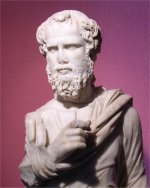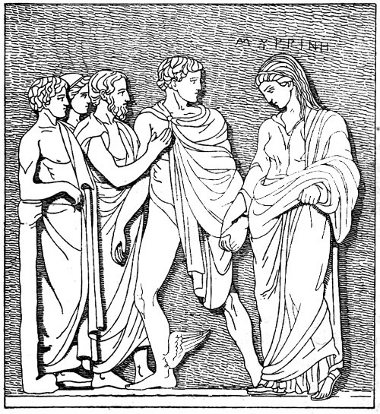 Over at Parchment and Pen Michael Patton has posted a chapter on the Trinty, part of a forthcoming book called The Discipleship Book, intended to instruct new Christians.
Over at Parchment and Pen Michael Patton has posted a chapter on the Trinty, part of a forthcoming book called The Discipleship Book, intended to instruct new Christians.
Dear new Christians – beware. Patton is sincere, but misinformed. He thinks the Bible obviously teaches what he’s asserting, and reasons that any prior Bible-loving Christians must’ve thought likewise.
But having studied a vast amount of historical writings by Christians, I can assure you that this is demonstrably not so, even if we stick to “mainstream” Christians (so ignoring, e.g. “Arians”, Marcionites, etc.) I take no pleasure in pointing this out, and I wish it were as simple as Patton says. But facts are facts.
I’ve discussed his sort of take on the Trinty before. It is not, as Patton says in a comment, “what the Bible teaches and Christians for 2000 years have believed.” It is what (some? many?) theologians at Dallas Theological Seminary think about the Trinity. How widespread these views are, I’m not sure. But the many evangelical and other theologians riding the “social trinitarian” bandwagon would not agree with what Patton says.
Regarding what Patton holds forth as “the best we can do”, take care lest you fall into inconsistency.
You should know that some of the most brilliant Christian thinkers in the last 100 years have held many different views on just how “the” doctrine should be understood. Unfortunately, these theories are, for the most part, not consistent with one another.
Patton asserts thatRead More »Warning to New Christians









 Over at
Over at 






 First up to bat, Jewish theologian and philosopher Neil Gillman.
First up to bat, Jewish theologian and philosopher Neil Gillman.

